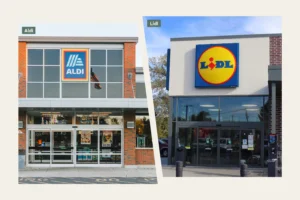The principle of The Decoy Effect is the art of taking advantage of human psychology to make prospective customers purchase the package that offers the best value for them while at the same time yielding the highest profits to your business.
So, is it upselling? Not exactly, the aim should always be to focus on giving the best to your clients. It’s often the case that people don’t always know what the best package or service for them might be, so the goal of any business is to steer them in the direction that will give them what they need, give them value for money, while helping to achieve the goals of your own business, which is ultimately to grow in the most effective and ethical way.
This is a technique widely used online by companies such as Apple. If you’re looking to buy a new computer, for example, such as an iMac, buying the cheapest spec available may be attractive to your pocket but may not ultimately give you the performance that you’ll need to effectively achieve the purpose for which you’re buying it. You’ll find a range of different specs, as the spec gets higher this directly results in a rising purchase price.
So, is this wrong? Not necessarily, as you’re likely to be able to do more with a higher spec machine and ultimately be more efficient and productive, which is likely to result in increasing your income, or at the very least giving you more time to do other things. By putting the various options in front of you though, it’s human nature to want the best available, so most people will go for the highest spec, budget permitting.
So, the secret is to learn how to steer your potential customers towards the right package that offers them the most value, while at the same time maximising your profits. Customers who feel that they have received a quality product or service at a fair price are far more likely to go on to become advocates of your brand. This is certainly the case with Apple, who have a constantly growing and hugely loyal customer base.

Using Psychology to Grow Your Business
As a business owner, there are many things that you can do to tap into the psychology of your potential customer. If we think about the concept of ‘value’, it varies from individual to individual, business to business and case to case. It’s been proven that a ‘fair’ price can vary for the same product depending on the context and circumstance. So, how can you work with this psychological loophole to maximise the value of what you offer?
The first thing you can do is revisit your offering and pricing structure. For example, if you offer online consulting, with a ‘basic’ plan at £19.99 per month and ‘premium’ plan at £49.99 a month, you’ll probably find most of your users opting for the less expensive option. If you introduce a third ‘decoy’ option at £35.99 a month, that includes access to the majority of the features included in the advanced package, you’re likely to find more people going for that.
By doing this, you add a little more complexity into a customer’s decision-making process and in a way, you’re influencing the decision for them. The premium features that aren’t in the ‘decoy’ package would need to be vanity features that your target customer can live without. In other words, these features are nice-to-have, while not being deal-breakers if not in the package. By doing this, you will have increased your profit margin while still giving your customer great value for money.
If you’d like to find out more about the science behind ‘The Decoy Effect’, Joel Huber, John W. Payne and Christopher Puto conducted a study at Duke University to see how it impacts our everyday decision making. You can read the scientific explanation and how it influences our decisions when it comes to finances by clicking below –
The science behind The Decoy Effect
For more customer insights, why no take a look at ‘How Much Should You Spend to Acquire New Customers?‘





